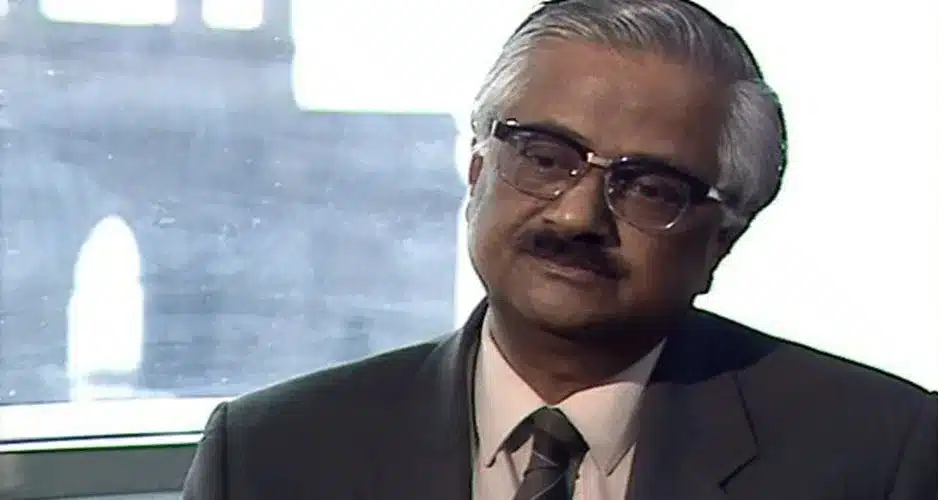Raja Ramanna, an Indian physicist.

Raja Ramanna (28 January 1925 – 24 September 2004) was an Indian physicist who was heavily involved with India’s nuclear program in the early days.
Early Life
Raja Ramanna was born on 28 January 1925, Mysore, India. He completed his schooling at the Bishop Cotton Boys’ School in Bengaluru, India. In 1945, he graduated with a bachelor’s degree in physics from Madras Christian College. Later, in 1949, he got his doctorate in physics from King’s College London.
In 1947, Jawaharlal Nehru started and envisioned the Indian nuclear program, which was organised by Homi J. Bhabha. Ramana was one of the secrets of that program. Following his doctorate in physics, Ramanna returned to India in 1954, where he joined the Bhabha Atomic Research Centre (BARC) to work on classified nuclear weapons projects under Homi J. Bhabha.
His group was assigned to develop a nuclear fuel cycle in 1958. Ramanna became the de facto head of the nuclear bomb programme after Bhabha died in 1966. Work on the nuclear programme became more active when Indira Gandhi became prime minister in 1967. About 75 scientists worked on the bomb. They included Homi Sethna, who developed weapon-grade plutonium, and P.K. Iyengar.
The scientists were given the green light to build a nuclear device and get it ready for testing by Indira Gandhi in September 1972. All preparations were done in secrecy. A few people knew the test was on May 18, 1974.
In the 1980s, he continued to work very closely with India’s nuclear programme. M.R. Srinivasan wrote in The Hindu in September 2004 that Ramanna thought that only by becoming a nuclear power could India secure its geo-strategic interests. During Ramanna’s tenure as Chairman of the Atomic Energy Commission (1983-1987), he was especially interested in this question, after serving as Scientific Adviser to the Defence Minister (1977-1980).”
He served as the director of BARC from 1972 to 1978 and 1981 to 1983, and he oversaw India’s first nuclear test in 1974. Additionally, he was head of the Atomic Energy Commission (1984-87), the defense research secretary (1978-81), and the minister of state for defense (1990).
Ramanna didn’t just work on nuclear weapons and advocate for them; he was a member of a lot of groups, like the Indian Academy of Sciences, the Indian Institute of Science, and the National Institute of Advanced Studies.
Awards
He received the Padma Shri and Padma Bhushan, in 1968 and 1973, India’s fourth and third highest honors.
In 1975, in honour of his work on the Indian nuclear programme, he won the Padma Vibhushan, the second highest civilian decoration in India.
Death
He died on 24 September 2004, Mumbai, Maharashtra, India.
Observer Voice is the one stop site for National, International news, Sports, Editor’s Choice, Art/culture contents, Quotes and much more. We also cover historical contents. Historical contents includes World History, Indian History, and what happened today. The website also covers Entertainment across the India and World.

